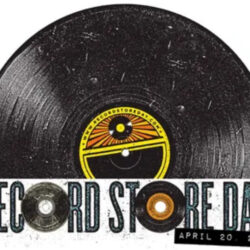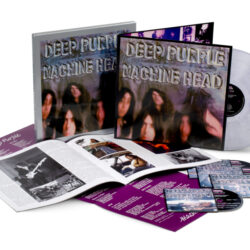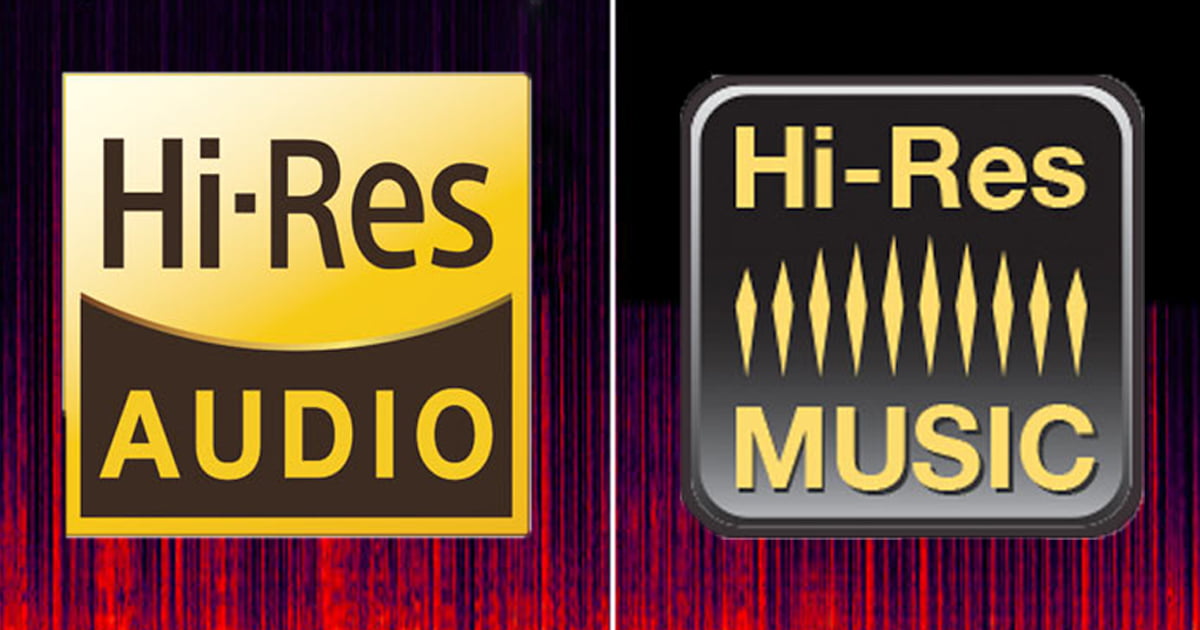It’s the time of year for saving money!
Boy, what a conundrum we digital audiophiles must face in order to achieve a high level of musical enjoyment. As the various formats evolve and develop over time, as technologies change and purportedly become better, the variety of available methodologies audiophiles have at their disposal also increases. I’m curious, do all the new and supposedly superior than everything else ways to listen to digital music really make things all that much better?
 I say with certainty that analog, and obviously in our lifetimes the humble LP, is the first format for better than radio played in the home. It absolutely was in my case. I started with a handheld AM / FM radio, the “iPod” of its day, and progressed to an integrated, turntable and two speakers. It was my introduction to high performance audio.
I say with certainty that analog, and obviously in our lifetimes the humble LP, is the first format for better than radio played in the home. It absolutely was in my case. I started with a handheld AM / FM radio, the “iPod” of its day, and progressed to an integrated, turntable and two speakers. It was my introduction to high performance audio.
Analog has a certain simplicity. Put the record on the turntable, lower the tonearm, play music. Yeah, okay, I’ll allow that according to comparative audiophile dogma that description might be slightly over simplistic. And regardless of what anyone will say, either positively or negatively about the sonic qualities of an LP, what cannot be denied is the simplicity of its usage and the knowledge of what the format will, and will not deliver. That wonderful smooth sound, pops and clicks and a more limited than digital audio dynamic range comes to mind. However it may be perceived, lots of people still love analog. Could it possibly be that in addition to actually liking the sound, analog proponents also like the format because they know what to expect? Is there beauty and sonic bliss in consistency?
To say that digital music has been revolutionized would be a vast understatement. From a commercial perspective, CD’s started appearing to the general public, at least in the US, in 1982. Perfect sound forever. I wonder, if I could go back in time and ask the folks at Sony and Phillips, the companies credited with inventing the CD format, what they thought of digital today, would they be pleased or disheartened at how their perfect sound format has evolved?
 Let’s start with MQA. This format has become one of the more hotly contested debates swirling around our hobby today. Regardless of what is thought about MQA, positive or negative, lossy or loseless, unfolding, folding, audio origami, better or worse than Red Book CD, any of that, I would hope we can agree MQA does mean doing things differently as compared to a CD. First we need a streamed MQA certified format. In the US, just say Tidal. Secondly, to fully unfold the MQA signal for the highest level of musical quality, an MQA capable DAC must be used. Of course, any hope for better than a plain ole CD presentation is basically pointless if the music you predominately enjoy has not been reformatted as MQA compatible. Sort of a more complicated process requiring specialized componentry as compared to pushing the “open” button on the CD player, drop in a CD, and press play, right?
Let’s start with MQA. This format has become one of the more hotly contested debates swirling around our hobby today. Regardless of what is thought about MQA, positive or negative, lossy or loseless, unfolding, folding, audio origami, better or worse than Red Book CD, any of that, I would hope we can agree MQA does mean doing things differently as compared to a CD. First we need a streamed MQA certified format. In the US, just say Tidal. Secondly, to fully unfold the MQA signal for the highest level of musical quality, an MQA capable DAC must be used. Of course, any hope for better than a plain ole CD presentation is basically pointless if the music you predominately enjoy has not been reformatted as MQA compatible. Sort of a more complicated process requiring specialized componentry as compared to pushing the “open” button on the CD player, drop in a CD, and press play, right?
My preferred digital format is a CD, or a high resolution download copied to a server. Even that has it’s procedural drawbacks. I have to begin by copying the CD or download the HD file. In my case the server has multiple, custom, patented software solutions for things like jitter reduction, clocking methodologies, server operation, storage and playback so the copy process is longer and more involved than normal. Once the copy process is complete, I have to finish things by identifying certain metadata attributes to facilitate later retrieval of the selection. I tell myself this is not an issue when I hear the excellence that is likewise produced, but it does not change the fact that copying a CD, regardless of the server, is a more determined effort than, once again, load CD, push play.
 Many might think streaming is certainly easy and presents no procedural hang ups, especially when compared to a physical CD. Know what, that might be correct. Yet, however, streaming is likely significantly more difficult if there is not a viable Wi Fi connection that is both robust and seldom interrupted. Anyone with a WI Fi service of less than say, 20Mbps with multiple Wi Fi devices in the home may experience problems with slow service on something. Because let’s face, if your child complained their computer was painfully slow and as such they couldn’t do their homework, would you not turn off your audio system to free up available bandwidth? Of course you would. Now does that happen with great frequency these days? Ah, probably not so much. WI FI service has vastly improved in the last five years – but it would never happen with drop and push play. In any event, streaming might be legitimately viewed as equally convenient to a CD, easier or slightly more involved than the perfect sound way to play music. Any answer would be correct based on the opinion of the user. Of course, that says nothing about streaming’s sonic quality, which for some is great, others, like me, not so much.
Many might think streaming is certainly easy and presents no procedural hang ups, especially when compared to a physical CD. Know what, that might be correct. Yet, however, streaming is likely significantly more difficult if there is not a viable Wi Fi connection that is both robust and seldom interrupted. Anyone with a WI Fi service of less than say, 20Mbps with multiple Wi Fi devices in the home may experience problems with slow service on something. Because let’s face, if your child complained their computer was painfully slow and as such they couldn’t do their homework, would you not turn off your audio system to free up available bandwidth? Of course you would. Now does that happen with great frequency these days? Ah, probably not so much. WI FI service has vastly improved in the last five years – but it would never happen with drop and push play. In any event, streaming might be legitimately viewed as equally convenient to a CD, easier or slightly more involved than the perfect sound way to play music. Any answer would be correct based on the opinion of the user. Of course, that says nothing about streaming’s sonic quality, which for some is great, others, like me, not so much.
In the end, I am not confidently sure this is really a question with an identifiable answer. Audiophiles have the remarkable ability of making ways to play a song more and ever more difficult all in the name of better sonics. Needless to say, this is always acceptable because doing so is the basic premise of the hobby in the first place. We all want music to sound better. If it means going to various levels of extremes, if it precipitates decidedly more effort, if it makes us work just “that” much harder to achieve our sonic goals and be magically “wowed” by what we hear, who cares? I know I don’t.









Well I certainly miss having a Sony Playstation in my office to play CDs but a DAC and a laptop haven’t been too cumbersome.
And since CDs are the only format of most of the music I like I’m stuck with them.
Paul,
I take some issue with your “load CD, push, play”.
Unless your one an only CD is in your lap, you first have to find the CD, which means you have to store the things, which means you have to have some cataloging protocol, which means… Avoiding all of this makes it worthwhile to rip all your CDs ONCE and have Roon, iTunes, or whatever take care of all those housekeeping functions. The same applies to the usability of vinyl. Of course, “ripping” them is a whole ‘nuther thing.
and managing the tagging and labelling of all the ripped CDs!
I stick to mp3. Across multiple devices. PS4 PS3 nucI3 SMSL Q5 pro SMSL S50 Hk 2.1. All of them use MP3. My playlist is 2500 songs. Thanx
Hearing isn’t listening
True. What makes you think i don’t LISTEN? I stick to one format for convenience. And I’m verry happy with my speakers and setups. MYOFB
I decided on FLAC a few years ago. Where I can, I rip to flac, manage the hassle of labelling and tagging (non of the solutions I’ve tried has been good enogh that I’m prepared to use it in anger), save all to a NAS and have Roon to distribute around the house to various endpoints.
It’s getting there, but one REALLY has to want to do this as a passion. It’s hard work, non-intuitive and furstrating.
I do maitain a libarry of MP3s for those things I cannot rip, and for speech (that is BBC Radio comedy shows, plays etc.
So I have evolved to a music folder with FLAC, MP3 and Speech folders, managed the hard way (I use mps3tag) and distributed by Roon to (largely) RapsebryyPi endpoints feeding various hardware.
MP3 has poor fidelity. CD is better. Everything digital is compressed. It’s unfortunate that the kids of today will never know true Hi-fi. They don’t buy loads of big metal boxes to play audio. Their world is cheap headphones. My message to the Millenials is that the world will always be short of bandwidth, and that will always short you.
You have no clue what you are talking about.